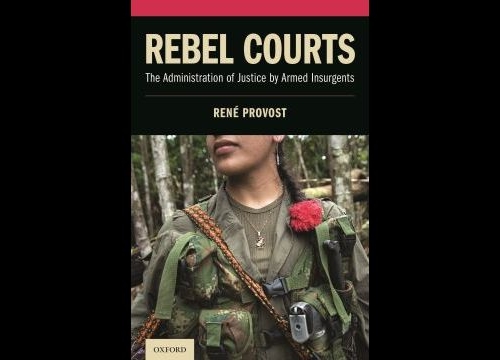Book Launch: Rebel Courts
Geneva Academy Talks


OUP
The new book Rebel Courts (Oxford University Press) by Professor René Provost, discusses the administration of justice by armed groups. Based on extensive fieldwork, it offers a unique insight into the judicial governance of armed groups, a phenomenon never studied comprehensively until now.
Using a series of detailed case studies of non-state armed groups in a diverse range of conflict situations, including the FARC (Colombia), Islamic State (Syria and Iraq), Taliban (Afghanistan), Tamil Tigers (Sri Lanka), PKK (Turkey), PYD (Syria), and KRG (Iraq), the book argues that it is possible for armed groups to legally establish and operate a system of courts to administer justice.
In this online book launch – part of our IHL Talk series –, Professor René Provost will discuss with leading scholars in international humanitarian law (IHL) and international human rights law the legal and practical challenges related to the administration of justice by armed groups.
Moderation
- Annyssa Bellal, Senior Research Fellow and Strategic Adviser on IHL, Geneva Academy
Panelists
- René Provost, Professor, McGill University
- Marco Sassòli, Professor of International Law, University of Geneva
- Mara Revkin, Fellow, Georgetown’s Center on National Security and the Law
- Helen Duffy, International Lawyer, Human Rights in Practice and Professor of International Humanitarian Law and Human Rights, Leiden University
- Ezequiel Heffes, Senior Policy and Legal Advisor, Geneva Call
- Mina Radondic, Former LLM Student, Geneva Academy
About IHL Talks
The IHL Talks are a series of events, hosted by the Geneva Academy, on international humanitarian law and current humanitarian topics. Every two months, academic experts, practitioners, policymakers and journalists discuss burning humanitarian issues and their regulation under international law.
Video
Book Launch: Rebel Courts
In this online book launch – part of our IHL Talk series – Professor René Provost discussed with leading scholars in IHL and human rights the legal and practical challenges related to the administration of justice by armed groups.








